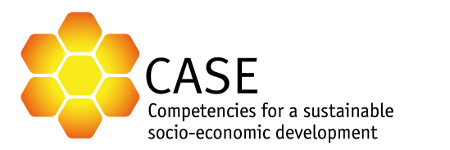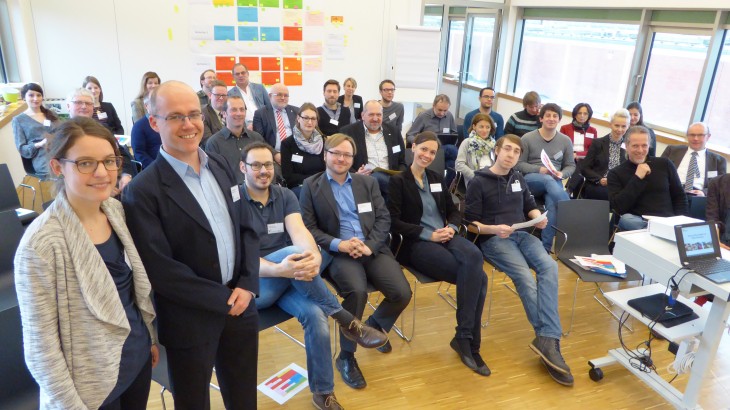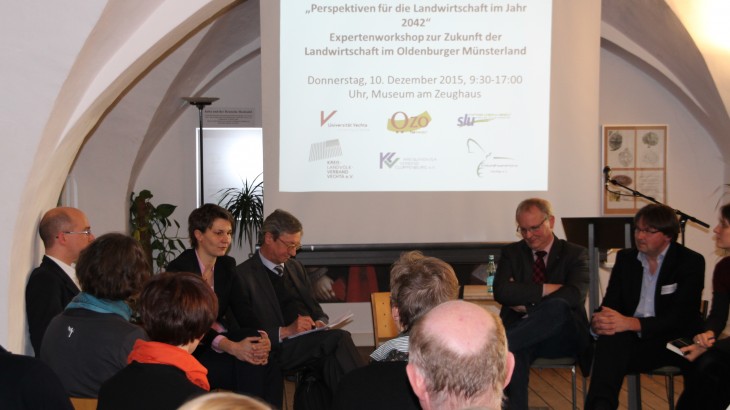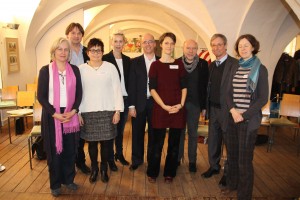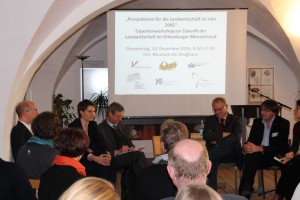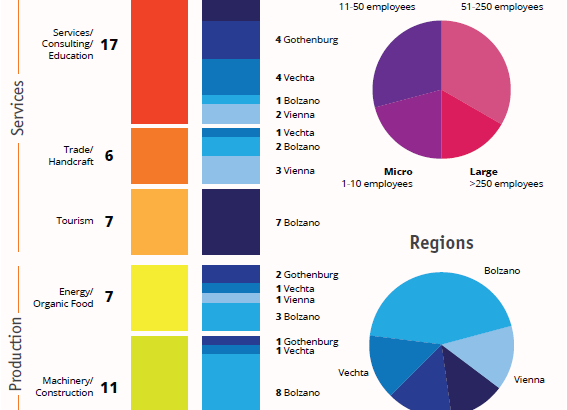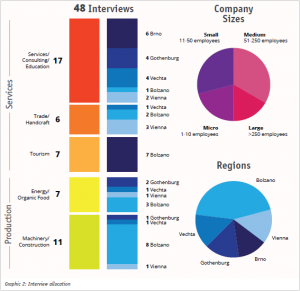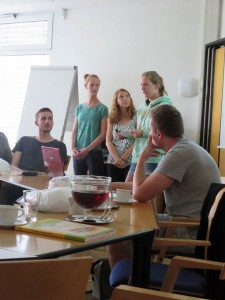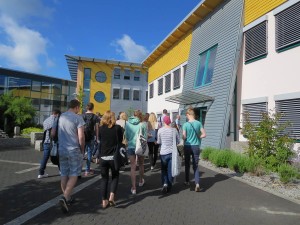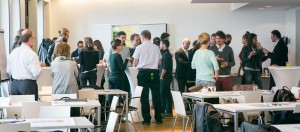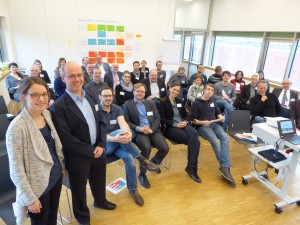
Greeting of the Workshop Guests in Vechta by Petra Biberhofer (Vienna University of Economics and Business) and Prof. Dr. Marco Rieckmann (University of Vechta) (left foreground). Photography: © Daubenspeck / University of Vechta
On Tuesday the 12th January 2016, 33 participants exchanged their ideas about the first draft for a Master’s programme on sustainability-driven entrepreneurship in Vechta. Within the EU-financed CASE project, Prof. Dr. Marco Rieckmann and Lisa Bockwoldt (University of Vechta) invited teachers and students of the University of Vechta as well as (economic) partners of the Oldenburger Münsterland to this event.
There are ten universities and economic partners from five European countries which work in the CASE project under the direction of the University of Economics in Vienna. The aim of the project is to develop an innovative concept for a European Master’s programme, called “Sustainability-driven Entrepreneurship”.
Prof. Dr. Marco Rieckmann explains: “It shall be shown how a Master’s programme could look like where students of different fields can work together with regional partners and participate as entrepreneurs in the social transformation for sustainable development.” Within the project, Prof. Dr. Marco Rieckmann is responsible for the development of innovative teaching and learning methods.
The new president of Vechta’s University Prof. Dr. Burghart Schmidt sees the EU-project as a great chance for his university: “The international dimension of CASE is an excellent opportunity to connect with partners of the EU and create long-term co-operations. The idea of sustainability itself is a big matter for us in Vechta. That is why we, for example, have arranged a target agreement 2014 -2018 including sustainability as a focus with the federal state of Lower Saxony.” Schmidt emphasises the exploratory character of the project: “The thoughts within CASE are still theoretical. The questions about if and if yes, when such a Master’s programme will be started at the University of Vechta are still open.”
After a short greeting and introduction into the project by Prof. Dr. Marco Rieckmann, Juliette Braun, the reference person for economic promotion in Vechta, outlined the regional characteristics and challenges for entrepreneurship and sustainable development in the Oldenburger Münsterland. Following this, the first outline for the Master’s programme was presented to the guests as a “work-in-progress” that should be discussed on the basis of some guiding questions: What is needed for implementing such a Master’sprogramme at the University of Vechta? How can students be attracted to such a programme? How can regional partners, especially enterprises, profit from this programme and how could co-operations look like?
All in all, the feedback was positive. “We are very delighted about the fact that so many participants are interested in collaborating with the project”, Lisa Bockwoldt summarises.
The draft for the Master’s programme will be developed further with the help of the workshop results. From the upcoming summer semester on, some modules, especially some teaching co-operations with enterprises and small “start-ups” are going to be tested at the six participating universities. For example, there will be a course at the University of Vechta, called “Sustainable development in the Oldenburger Münsterland: Solving Problems with the help of innovative projects”. Until the end of the project in 2017, the finished concept of a European Master’s programme should be presented. Beside the concept development, the project will also think about a possible implementation at the participating universities.
Article about the workshop in Sonntagsblatt für den Landkreis Vechta.
